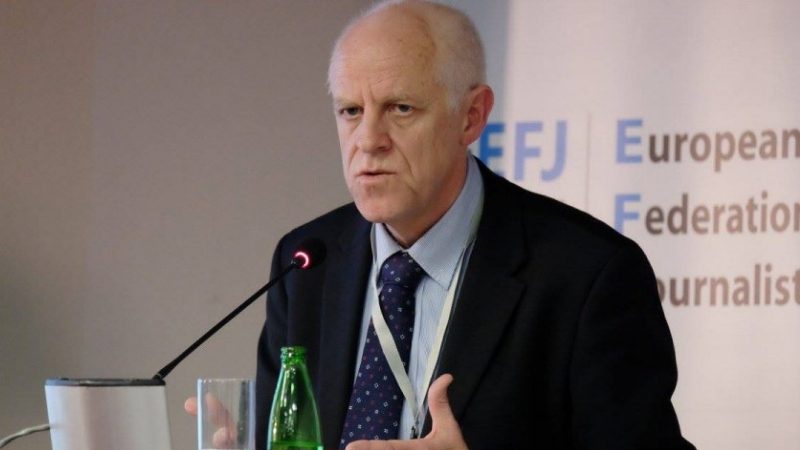As long as the investigations into the assassination of journalists are not resolved and impunity thrives, the risk of more crimes against journalists is high, according to Mogens Blicher Bjerregård, President of the European Federation of Journalists (EFJ).
Governments should follow the examples of bodies such as the United Nations, UNESCO, Council of Europe, European Union and send clear messages “unconditionally defending press freedom,” Bjerregård, who is also president of Free European Media, said.
In a publication bringing together 12 chapters from Europe encasing how media freedom is challenged, Bjerregård pointed out that it was the duty of the State to bring perpetrators to justice to prevent attacks on journalists.
He mentioned the murders of Daphne Caruana Galizia, Kim Wall and Jan Kuciak, saying that with the exception of Wall, “the situations for resolving the cases in Malta and Slovakia are much more difficult because the masterminds are hiding and in the worst case maybe even protected if such cases would expose the darkest side by being a part of the conflict between media and politics”.
Journalists had a duty to break censorship laws and should feel that they had the backing of the international community and organisations.
This statement was echoed by Caruana Galizia’s son, Matthew, who spoke at a conference at Gdansk, Poland, earlier this year. His speech was included in the publication.
He told of how he himself was in a situation where he resigned after an article was published because the editor did not want it to go to print and recounts that he had done so because he had learnt the importance of fighting for what was right from his mother.
“One of my biggest regrets is that I never told my mother what example instructed me to do this,” he said.
The masterminds are hiding and, in the worst case, maybe even protected
Caruana Galizia recounted an incident when he was around nine years old and saw his mother storming out of The Times of Malta’s offices with her opinion column in hand. The editor had refused to publish the column and she resigned.
“No one ever told me this or explained what happened—I was considered too young—but I understood instinctively what my mother was doing and why,” he said.
He spoke about the importance of speaking out and standing one’s ground. “Things have to be taught, witnessed, demonstrated and told. If they aren’t, then there is no model and there are no standards”.
Learn from the examples set by others who’ve been there before, Caruana Galizia said.
In its recommendations, drawn up by the stakeholders who took part in the conference, the federation urged governments to release all jailed journalists and stop taking them to court for doing their job.
Country leaders had to “firmly and unconditionally defend” and promote press freedom, safety of journalists and fight impunity by following the UN plan of action for safety and the issue of impunity.
Governments should also stop using adverts to support selected media and respect journalists’ right to cover all sort of demonstrations and other events – even when critical to authorities.
Investigative journalism should be defended and promoted and the media should be given access to migrants and refugees or people in difficult situations.












